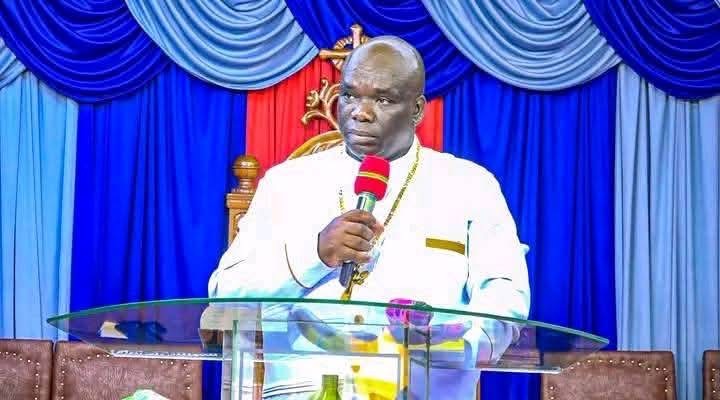News
NTV Journalists Face Death Threats After Exposing ‘Prophet’ Maina’s Gambling Scam

Two broadcast journalists report credible threats following investigative documentary that revealed illegal gambling operations disguised as religious programming
Two Nation Media Group journalists are living in fear after receiving death threats linked to their explosive investigative report that exposed how religious broadcasters were operating illegal gambling schemes under the guise of faith-based programming.
Ibrahim Karanja and Fred Muitiriri, both seasoned broadcast journalists with NTV, have formally requested police protection following what their employer describes as “credible threats” to their safety.
The threats emerged just days after their hard-hitting documentary “Sacred Swindle” aired on May 25, exposing a network of religious broadcasters allegedly defrauding Kenyans through rigged gambling operations.
The investigation, which also aired in Kiswahili as “Madhabahu Ya Kamari,” specifically implicated Prophet David Maina’s Yahweh’s Evangelistic Revival Ministries and its media arm, Yahweh’s Media Services Limited, along with several affiliate stations.
“They have separately received credible information to the effect that they have received threats or noticed actions in their environment which make them apprehensive that some persons may be planning to cause harm to them,” reads a formal complaint letter addressed to Nairobi Regional Police Commander George Seda.
The intimidation campaign appears sophisticated and persistent.
According to NMG’s Head of Legal, Sekou Owino, both journalists have been receiving mysterious phone calls on their private cell phone numbers, with callers remaining silent when the calls are answered – a classic intimidation tactic designed to create psychological pressure.
“This information is compounded by the fact that each of the said reporters has received several phone calls to their private cell phone numbers but whose callers simply remained silent upon receipt of the calls,” Owino stated in the police complaint.
The threats have created a climate of fear for the journalists, who now believe individuals exposed in their investigation may be planning to harm them.
Both reporters have expressed their willingness to cooperate fully with police investigations, offering to provide statements and any additional evidence that could help identify those behind the intimidation campaign.
The documentary’s impact was immediate and far-reaching. M
Within hours of broadcast, the Communications Authority of Kenya (CA) acknowledged the gravity of the revelations and took swift regulatory action. The authority invoked Section 83A of the Kenya Information and Communications Act, 1998, imposing fines of Sh500,000 on each non-compliant broadcaster and issuing a 12-hour ultimatum to cease all unlawful broadcasts.
The investigation revealed how religious platforms were being exploited to promote unlicensed gambling operations, with viewers being deceived into believing they were participating in legitimate faith-based activities. The scheme represents a particularly cynical form of fraud, preying on the religious faith of vulnerable Kenyans while operating outside the legal framework governing gambling in the country.
This case highlights the growing risks faced by investigative journalists in Kenya, particularly those whose work exposes powerful interests. The targeting of Karanja and Muitiriri underscores the dangerous intersection between organized fraud, religious manipulation, and media intimidation.
The Kenya Union of Journalists has previously documented increasing threats against media personnel, with investigative journalists facing particular risks when their reporting threatens established networks of corruption or fraud.
Kenya Insights allows guest blogging, if you want to be published on Kenya’s most authoritative and accurate blog, have an expose, news TIPS, story angles, human interest stories, drop us an email on [email protected] or via Telegram
-

 Grapevine2 weeks ago
Grapevine2 weeks agoRussian Man’s Secret Sex Recordings Ignite Fury as Questions Mount Over Consent and Easy Pick-Ups in Nairobi
-

 News7 days ago
News7 days agoTHE FIRM IN THE DOCK: How Kaplan and Stratton Became the Most Scrutinised Law Firm in Kenya
-

 Investigations1 week ago
Investigations1 week agoMulti-Million Dollar Fraud: Three Kenyans Face US Extradition in Massive Cybercrime Conspiracy
-

 Economy1 week ago
Economy1 week agoIran Demands Arrest, Prosecution Of Kenya’s Cup of Joe Director Director Over Sh2.6 Billion Tea Fraud
-

 Business1 week ago
Business1 week agoA Farm in Kenya’s Rift Valley Ignites a National Reckoning With Israeli Investment
-

 Africa1 week ago
Africa1 week agoFBI Investigates Congresswoman Ilhan Omar’s Husband’s Sh3.8 Billion Businesses in Kenya, Somalia and Dubai
-

 Grapevine3 days ago
Grapevine3 days agoA UN Director Based in Nairobi Was Deep in an Intimate Friendship With Epstein — He Even Sent Her a Sex Toy
-

 Politics2 weeks ago
Politics2 weeks agoSifuna, Babu Owino Are Uhuru’s Project, Orengo Is Opportunist, Inconsequential in Kenyan Politics, Miguna Says


















